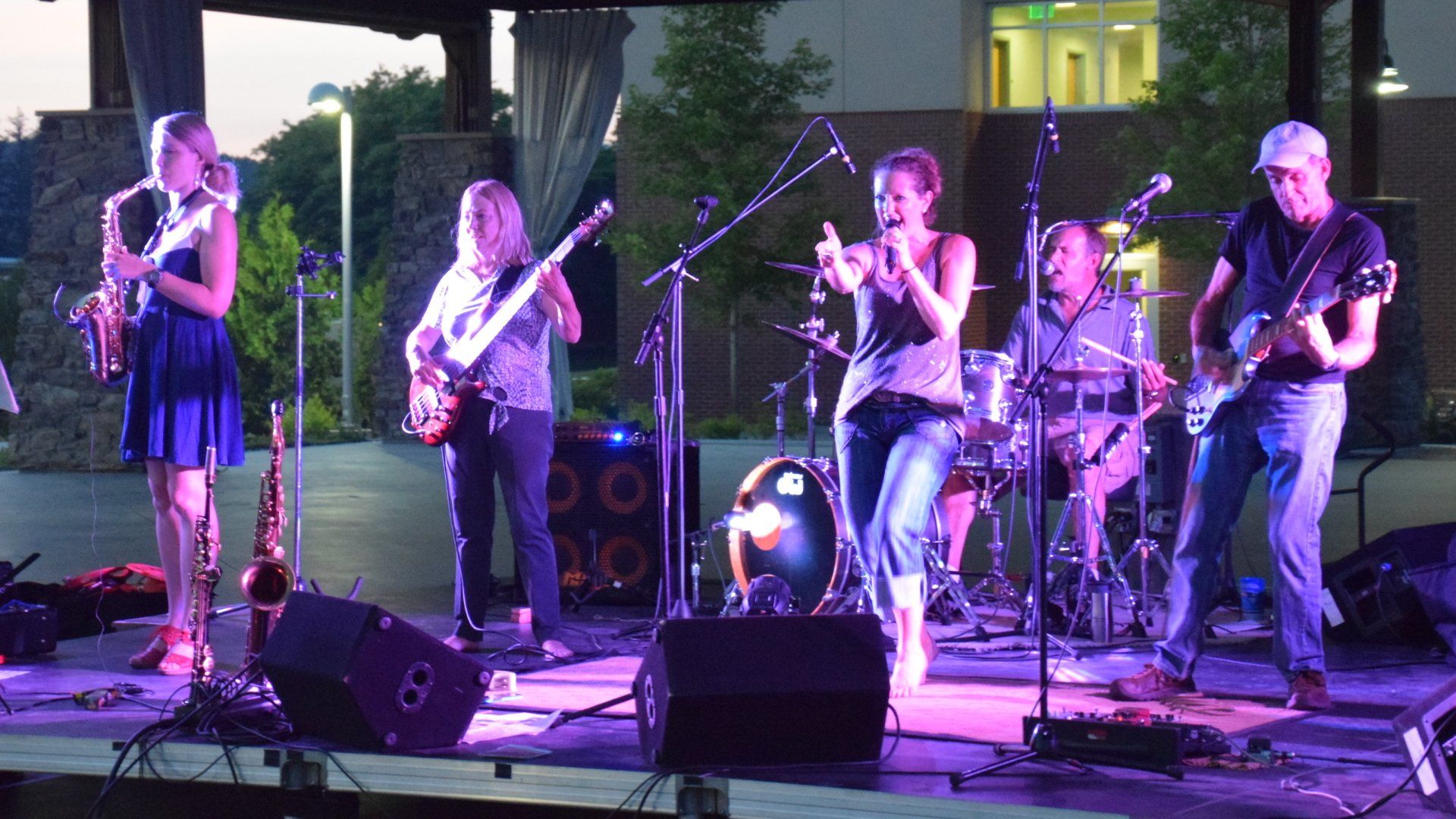Blog

I was the kid who would run around the house like a maniac if I heard a Sousa march, who would stand transfixed in front of a Dixieland band at a July 4th celebration, who would beg my dad from the back seat to turn up the radio when they played my favorite song. As a 10 year old I wept for lost love as Last Kiss played. I twisted like a dervish around my bedroom to Chubby Checker. Every word and vocal inflection of every song was burned in my heart. Stand By Me, Will You Still Love me Tomorrow, Shop Around, Georgia on My Mind, Runaway, and hundreds of other songs were my window to the great big world out there. It was as if all of those emotions, which already existed inside me, had finally found a voice. The voice was optimistic, empowering, and liberating. It was rock and roll! At the time I never dreamed that I could actually make music; I just felt lucky that it was there for me to enjoy. I’ll save the story of how I started playing and performing for another blog post. The point I’m trying to make here is that I’m not unique; everyone has those emotions ricocheting around inside them, and music can help them to experience these emotions, and therefore their lives, more fully. Recently I visited my son in Southern Ohio, where he works with developmentally disabled adults. We put on an impromptu music performance for the clients, as they’re called. We played old rock and soul songs, a few jazz standards, and some requests. The folks we were playing for ranged from partly functional to severely impaired, but they were experiencing the energy and the emotional content of the music deeply and intensely. At that moment the barriers of their affliction were lifted, and their feelings were given a voice. It was a joyful experience, for them and for me. We were all alike in that moment, and music made that possible. I can’t imagine any other medium that could have broken down those barriers as quickly. Music matters because it touches something in all of us that is fundamentally the same. It unites us. I once said to a friend “Everyone has music in them.” He laughed and said “Almost everyone”. Perhaps he’s right, but I have yet to meet someone who didn’t.
Tom Rush and Dave Van Ronk When I first picked up the guitar I listened to Tom Rush’s self-titled album with Panama Limited Solid Gone, Windy Bill, and other great tunes from the folk canon. On his album 1968 album “The Circle Game” I heard the songs of Joni Mitchell and Jackson Browne for the first time. I still love his version of Panama Limited, and old blues recitation by Bukka white that he reworked ( https://www.youtube.com/watch?v=JFTjC4I-7PU ). Dave Van Ronk introduced me to acoustic blues and ragtime; also to fingerpicking, which was the first semi-advanced guitar technique I mastered. I wish I did it as well now as I once did! I learned Cocaine Blues ( https://www.youtube.com/watch?v=hCoKGgED5IE ) which is a great guitar piece, and also made me feel like an outlaw as a suburban teen. Beatles and Stones It’s hard to overstate the musical and cultural impact of these guys, and it’s obvious to cite them, but these were real self-contained bands that, unlike most American rock acts of this era, wrote their own songs, played their own instruments. They were new, had long hair, and they were just plain different. My father hated the Stones, especially “Satisfaction”, with its iconic fuzztone guitar riff. My mother said that the repetitive guitar lick in “The Last Time” gave her a headache. I loved it! The Beatles drew on American rock and roll, soul, and country and changed the musical landscape, opening the floodgates for bands like the Lovin’ Spoonful, the Byrds, and the Buffalo Springfield. Michael Bloomfield with Bob Dylan My Older sister turned me on to Dylan around the time he released “Bringin’ It All Back home”, his first album partly electric album. I loved it, and when Highway 61 Revisited came out in 1965 I immediately got a copy. The great Michael Bloomfield was playing guitar on the album – it was a groundbreaking album. The beginning of folk rock, and for Dylan, a bold reinvention of himself. Michael Bloomfield with the Butterfield Blues Band I can’t remember who first introduced me to The first Butterfield Blues Band album from 1965, or “East West” from 1966, but I hadn’t heard anything like it in my young life! This band was so un-pretty, un-pop, and just dangerous that I was instantly drawn in. And the music was nmore raw, funky, aggressive, and improve-oriented than any I had experienced before. Cream - Disraeli Gears I love the first album as well, but this album taught me a lot about the vocabulary of rock guitar. My favorite Clapton album though is the one he made with John Mayall at the tender age of 21, known as the “Beano” album after the comic book Clapton is reading in the cover photo. His playing is devastating, and really marks the invention of heavy rock guitar. Their version of Otis Rush’s “All Your Love is a good example: https://www.youtube.com/watch?v=rUUEtCBhn_Q OK That’s five: More soon.
